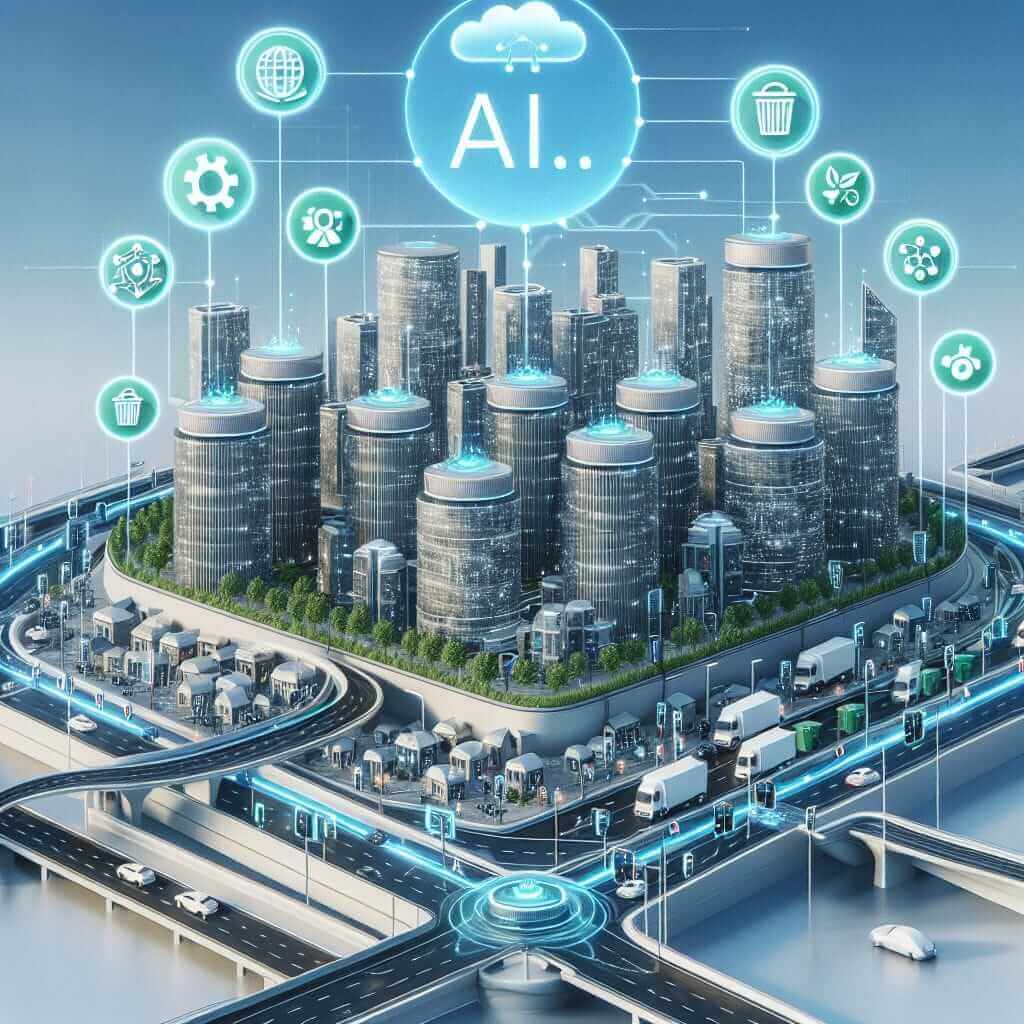The IELTS Reading section tests a candidate’s ability to understand detailed texts, recognize opinions and attitudes, and identify the main ideas or specific information. One contemporary topic often making its way into reading passages is “How is AI being used to optimize urban infrastructure?”. This discourse is increasingly relevant as cities worldwide adopt AI technologies to improve urban living. Understanding this topic can sharpen your comprehension skills and prepare you for similar themes in the IELTS exam.
In this article, we will delve into a comprehensive reading practice set based on the given theme, including reading passages, question types, answer keys, common pitfalls, and important vocabulary and grammar tips.
Reading Passage: How is AI Being Used to Optimize Urban Infrastructure?
Type: Medium Text
Artificial Intelligence (AI) is transforming the landscape of urban infrastructure, making cities smarter, more efficient, and more sustainable. From traffic management to waste disposal, AI technologies are being deployed to tackle various urban challenges.
Traffic Management
AI systems analyze data from traffic cameras, sensors, and GPS devices to optimize traffic flow, reduce congestion, and minimize delays. For instance, AI-powered traffic lights adjust signal timings based on real-time traffic conditions, enhancing road safety and reducing fuel consumption.
Waste Management
Smart waste management systems use AI to monitor waste levels in bins, optimizing collection routes and schedules. This reduces operational costs and environmental impacts while ensuring cleaner cities.
Energy Management
AI-driven energy management systems predict and balance energy demand and supply, integrating renewable energy sources and improving energy efficiency. AI algorithms also optimize heating, cooling, and lighting in buildings, contributing to significant energy savings.
Public Safety
AI enhances public safety through advanced surveillance systems that automatically detect unusual activities, aiding law enforcement agencies in preventing crimes. AI-powered predictive policing models analyze historical data to anticipate and mitigate potential criminal activities.
Water Management
AI applications in water management optimize the use of water resources by predicting demand patterns and identifying leaks or inefficiencies in the water supply network. This ensures a reliable water supply and reduces wastage.

Questions
1. Multiple Choice
- What is the primary benefit of using AI in traffic management?
a) Reducing the time needed to build roads
b) Enhancing road safety and reducing fuel consumption
c) Increasing the number of traffic signals
d) Lowering the cost of road maintenance
2. True/False/Not Given
- AI technologies are only useful for traffic management. ( )
- AI-driven energy management systems integrate renewable energy sources. ( )
- AI cannot predict patterns for water management. ( )
3. Matching Information
Match the following AI applications with their benefits:
a) Smart waste management
b) Public safety surveillance
c) Energy management systems
d) Water management
i. Optimizes collection routes and schedules
ii. Enhances road safety and reduces fuel consumption
iii. Predicts and balances energy demand and supply
iv. Identifies leaks or inefficiencies in the water supply network
4. Sentence Completion
Complete the following sentences using NO MORE THAN THREE WORDS.
5. AI-powered traffic lights adjust signal timings based on __.
6. Predictive policing models analyze __ to anticipate potential criminal activities.
Answer Keys
- b) Enhancing road safety and reducing fuel consumption
- False
- True
- Not Given
- a) i; b) iv; c) iii; d) ii
- real-time traffic conditions
- historical data
Common Mistakes in Reading Comprehension
- Misinterpreting Questions: Carefully read questions to understand what they are specifically asking. Pay attention to keywords.
- Overlooking Context: Always consider the context of a sentence or paragraph when deriving answers.
- Incomplete Answers: Make sure your answers, especially in sentence completions, adhere to the word limit specified.
Vocabulary
- Congestion (noun) /kənˈdʒɛs.tʃən/: Overcrowding; clogging
- Optimize (verb) /ˈɒp.tɪ.maɪz/: Make the best or most effective use of
- Surveillance (noun) /sərˈveɪ.ləns/: Close observation, especially of a suspected spy or criminal
- Predictive (adjective) /prɪˈdɪk.tɪv/: Relating to the prediction of future events
Grammar
- Passive Voice: Often used in formal writings such as academic texts.
- Structure: Subject + BE (am/is/are/was/were) + Past Participle
- Example: “AI systems are being deployed to tackle various urban challenges.”
- Conditional Sentences: Used to describe actions in certain conditions.
- Type 1: If + Present Simple, will + base verb
- Example: “If AI systems analyze data correctly, they will optimize traffic flow.”
Tips for Improving IELTS Reading Scores
- Practice Regularly: Regular reading practice improves speed and comprehension.
- Diversify Reading Materials: Include academic articles, reports, and narratives to get used to different writing styles.
- Use Timed Practice: Simulate exam conditions by timing your reading practice.
- Improve Vocabulary: Build a strong vocabulary to understand and interpret texts accurately.
- Review and Reflect: Analyze your mistakes and continually refine your strategy.
Gaining proficiency in reading passages like “How is AI being used to optimize urban infrastructure?” not only prepares you for the IELTS exam but also equips you with knowledge on contemporary issues shaping our world. Happy studying!